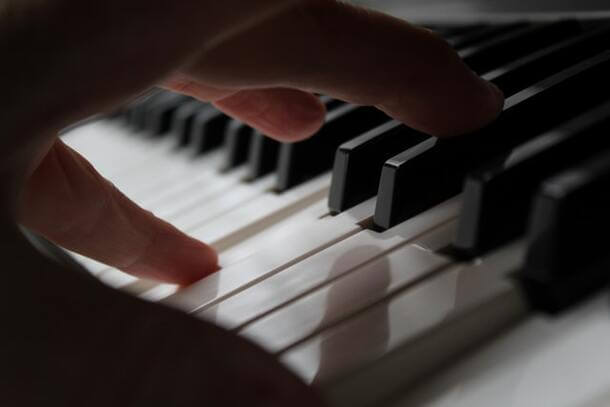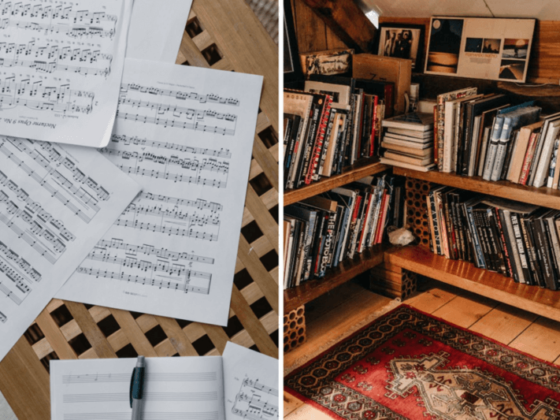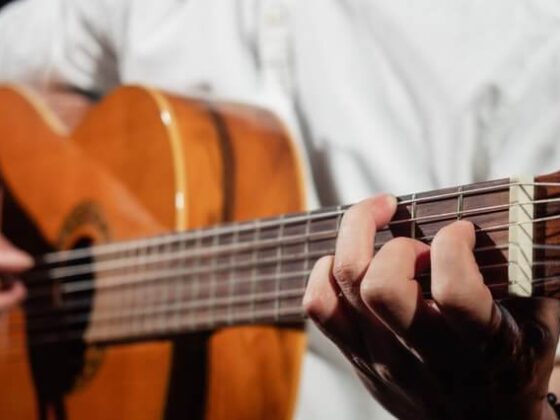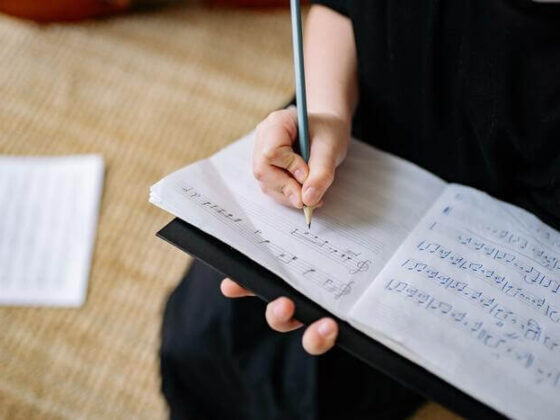Arthritis exists for multiple reasons. Some of these factors are in your control to an extent, and some aren’t. Repetition of similar movements over a long period is one. This stress raises concerns for developing arthritis for pianists. But does playing piano cause arthritis?
Musicians are at a higher risk of developing osteoarthritis. And, pianists especially strain their joints repetitively, becoming more prone to arthritis. However, you can prevent this from happening or growing by making a few changes to your playing and lifestyle.
Arthritis affects the joints where different bones meet and move. When this joint is damaged, it can hurt your bones and even cause inflammation. Likewise, if the joints between your muscles are damaged, specific movements can hurt.
Arthritis in the hands can be heart-breaking for pianists since their movement is focused around their hands and fingers. However, not all pianists develop arthritis, and some can play for years without any pain or discomfort. This article sheds light on the relationship between arthritis and piano playing and provides five practical tips on playing the piano with arthritis at the end.
Looking for a fun & easy way to learn the piano?
Skoove offers interactive piano lessons that work with all pianos and keyboards!
Try it now with a 7-day free trial
Does Playing Piano Help if You Have Arthritis?
Arthritis can be helped and eased with exercises if done correctly. Correct piano playing with warm-up exercises and breaks from practice can be beneficial in this regard. Gentle and simple playing can be therapeutic and help with arthritis in some cases.
Multiple measures such as gels, sprays, massages, rubs, and exercises are recommended to help with arthritis. Correct piano playing is a form of exercise that can help in specific scenarios and may even ease your pain.
You’ll need to focus on your playing style and adapt to the one that suits you and brings the least amount of pain. Working through the pain should be strictly avoided because it can worsen your situation. However, each situation is different, and having a professional opinion is always recommended.
The safest bet is to avoid rigid, stiff, and jerky movements while playing the piano. Instead, focus on a smooth hand motion and avoid strains whenever you feel one.
Following YouTube videos designed to play the piano to help with arthritis is a safe and fun way to enjoy the process while lowering your arthritis pains. In addition, by playing the piano correctly, you can gain mental benefits and enjoy a wonderful hobby while dealing with the troubles of arthritis.
Does Playing Piano Prevent Arthritis?
Playing the piano can improve your motor skills, agility, and hand-eye coordination, positively affecting your brain and mood. In addition, the benefits of playing the piano correctly can indirectly keep you healthy and prevent arthritis and a few other diseases.
There are multiple reasons and causes for which you can get arthritis. And some of these factors aren’t in your control, such as your gender and genetics. For example, women are more prone to arthritis than men, and having a history of arthritis in your family increases your chances of getting it significantly. However, factors like your lifestyle, weight, physical activities, stress levels, etc., are in your control and can help prevent and lower the chances of getting arthritis.
Playing the piano correctly has multiple benefits attached to it. Playing piano with the proper form and technique is essential. Brain chemicals such as serotonin and dopamine that keep you focused and relaxed are released by playing the piano. These chemicals regulate your mood and help in lowering your stress levels.
In addition, playing piano has benefits for neuroplasticity of the brain and your physical health as well. The muscles of your hands and arms would get much stronger than the average person by playing the piano. Strong muscles in your hands can prevent the joints from wearing out as well.
Music is shown to lower heart and respiratory rates, regulate blood pressure and improve the functions of the immune system. By playing the piano correctly, you can keep yourself healthy, your muscles strong, and take control in preventing arthritis from occurring.
Can You Play Piano With Arthritis?
With some lifestyle changes, precautions and care, you can play the piano even with arthritis. Warming up, cooling down, and having breaks during a practice session are essential. Stop and rest when you need to.
Arthritis can be detrimental to pianists and musicians. Not being able to perform because of pain is devastating for any pianist. The good news is that even if you have arthritis, you can still play the piano. Of course, you’ll need to adapt to new techniques, make some lifestyle changes, and take precautions while playing, but it is possible to lower the pain levels so you can enjoy your hobby.
Some things are in your control that can help with arthritis. In addition to playing piano with a technique that alleviates pain, warming up and cooling down before and after every practice session is crucial.
Piano playing is like any other physical sport where you need to warm up and cool down to prevent injuries. Taking regular breaks and not practicing for long sessions keeps the strain levels of your hands regulated. Don’t try to practice and play through the pain because that can worsen the pain.
Specific lifestyle changes such as a nutritious diet, quitting smoking and alcohol, and losing weight improve bone strength. These factors can indirectly affect your piano playing and pain.
How to Play Piano With Arthritis?
Playing an instrument is beautiful, therapeutic, and even addictive. And giving up on an instrument because of joint pain is awful. But that’s not the end of the world, and you can still play the piano even if you have arthritis. These five practical tips are specific to arthritis and pianists. Using them to your advantage can help you start playing the piano again.
Use a Keyboard With a Light Touch
A keyboard with lighter keys is not only softer on your hands, but you can find them to be affordable as well. A piano with a light touch will bring less strain on your hands and help in the long term as well.
Change Your Playing Style
If you have arthritis, adapting to a new playing style that is comparatively easier for your hand is much more beneficial. Using a patterns style of playing can be much easier for lots of people. Your hands follow a similar pattern across the keyboard and you don’t need the same levels of mobility in your hands while playing in this specific style.
Use Comfortable Fingering Techniques
Using fingers and patterns that are more comfortable to you and your bones will make it easier to play the piano. You don’t need to use the traditional shapes, and you can mix and match to see what works for you. In addition, the same patterns can be run through the keys, and you won’t have to switch your fingers repeatedly.
Modify Your Practice Sessions
By making a few changes in your practice sessions, you can ease the pain caused by arthritis. Warming up and cooling down before and after a practice session keeps your muscles healthier for longer. Rest and giving yourself breaks during a practice session and keeping them short and effective are crucial.
Observe Other Aspects Of Your Life
Using your hands safely for other tasks such as typing, picking up heavy objects, texting, and other activities is also critical. By being precarious in other areas of your life, you can lower the levels of your arthritis significantly. And lower levels of arthritis will help you play the piano much better.
Conclusion
Many factors can cause arthritis, and it makes playing the piano difficult. Pianists may develop arthritis by practicing for too long as well. However, you can prevent arthritis from happening by taking different measures.
Despite arthritis, playing the piano is still possible. By adapting to new changes and observing other aspects of life, you can still enjoy your hobby.











